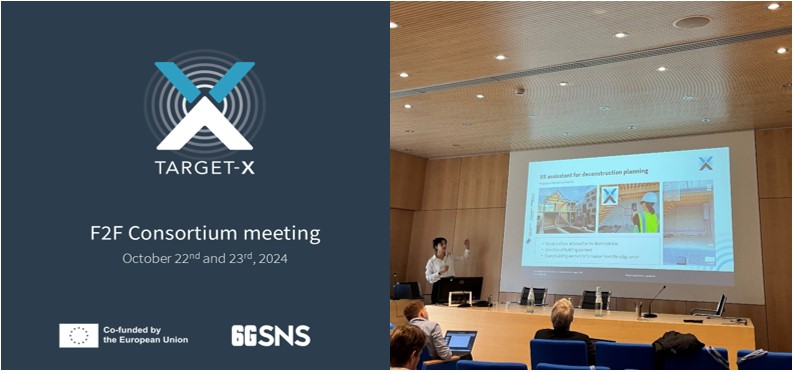

The Chair of Individualized Production looks back on a highly successful and inspiring week at bauma 2025 in Munich. Together with partners from industry and research, we had the opportunity to present numerous innovative projects, current research findings, and visionary approaches for the future of the construction industry. A particular highlight was the presentation of the MAXX project, led by the Center Construction Robotics in close cooperation with Fundermax GmbH, KUKA AG, and Jekko Srl.. The exceptional innovative strength of this project was recognized with the bauma Innovation Award 2025 in the Research category – a great honor and a strong confirmation of our joint efforts toward automated, sustainable, and digital construction processes. The project was funded by the “Digitalization of the Construction Industry and Innovative Building” initiative of the Ministry of Home Affairs, Municipal Affairs, Building and Digitization of North Rhine-Westphalia (NRW). Our exhibition stand at bauma 2025 served not only as a platform for showcasing our work but also as a hub for dialogue: In discussions with representatives from the construction industry, research institutions, and technology companies, we explored the challenges, requirements, and goals of the sector. These conversations made one thing clear: the future of construction can only be shaped through interdisciplinary collaboration, openness to new technologies, and a shared spirit of innovation. We would like to express our sincere thanks to our partners Jekko Srl. and BBL Baumaschinen GmbH for their outstanding collaboration and joint stand presentation. Their support played a vital role in the success of our presence at the trade fair. We look forward to building on the momentum and connections established – and to actively shaping the construction world of tomorrow together with our partners.
We are pleased to announce that project MAXX – Mobile Assembly X-System from our partner Center Construction Robotics is nominated for the bauma Innovation Award 2025 within the category Research.
The project was funded by the “Digitalization of the Construction Industry and Innovative Building” initiative of the Ministry of Home Affairs, Municipal Affairs, Building and Digitization of North Rhine-Westphalia (NRW) and was developed with the support of the industry partners of the Center Construction Robotics at RWTH Aachen, including Fundermax GmbH, KUKA AG, and Jekko Srl.
We are excited to share our final video showcasing the key highlights of the EConoM Project (Edge-Computing, KI und 5G-Campusnetze in nomadischer Anwendung für das Management von Baustellen). This groundbreaking initiative explores how edge computing, AI, and 5G can revolutionize construction site management.
We deeply appreciate our partners for their invaluable collaboration and expertise: HOCHTIEF ViCon, UNIBERG GmbH, RWTH Aachen University, planen-bauen 4.0, Center Construction Robotics, Fraunhofer FOKUS, Fraunhofer Heinrich Hertz Institute HHI, Zeppelin Rental GmbH
We also extend our gratitude to the Bundesministerium für Digitales und Verkehr for funding this project within the InnoNT - Förderprogramm Innovative Netztechnologien with TÜV Rheinland Group as the project coordinator.
We’re excited to share our latest development of the TARGET-X project within the construction vertical: The Prototype System for a Controlled Deconstruction Process By enabling controlled deconstruction, we’re paving the way for improved material recovery, reduced waste, and smarter construction practices.
We would like to thank our involved researchers for the continuous effort and engagement within this year: Marit Zöcklein, Victoria Jung, Wu Han Chu, Carsten Kamp, Sigrid Brell-Cokcan We wish you a Merry Christmas and looking forward to the next steps in the TARGET-X project in 2025. The TARGET-X project is funded by the Smart Networks and Services Joint Undertaking (SNS JU) under Horizon Europe (funding number 101096614). More information on the @TARGET-X project can be found on the website (https://target-x.eu/) and information on the @5G-ICE in Aachen (https://5g-industry-campus.com/).

We just wrapped up a successful consortium meeting, which took place on October 22-23 at the Marposs facilities in Bologna, where the focus was on advancing our research into 5G, 6G implementation across various verticals.
The meeting brought together experts and partners from the consortium to exchange insights on the progress made in different work packages, discuss open questions, and align our goals for the upcoming phases of the project.
A big thank you to Marposs for hosting us and for the productive discussions that will fuel the project as we move forward. We look forward to sharing our progress of 5G enabled deconstruction with all of you at Open CampusWeek 2025 on August 26 at the Reference Construction Site as part of 5G-Industry Campus Europe in Aachen.
Many thanks to the involved researchers Victoria Jung, Marit Zöcklein, Chu Han Wu.
The TARGET-X project is funded by the Smart Networks and Services Joint Undertaking (SNS JU) within Horizon Europe (funding number 101096614) to secure Europe’s leadership in 5G and 6G,